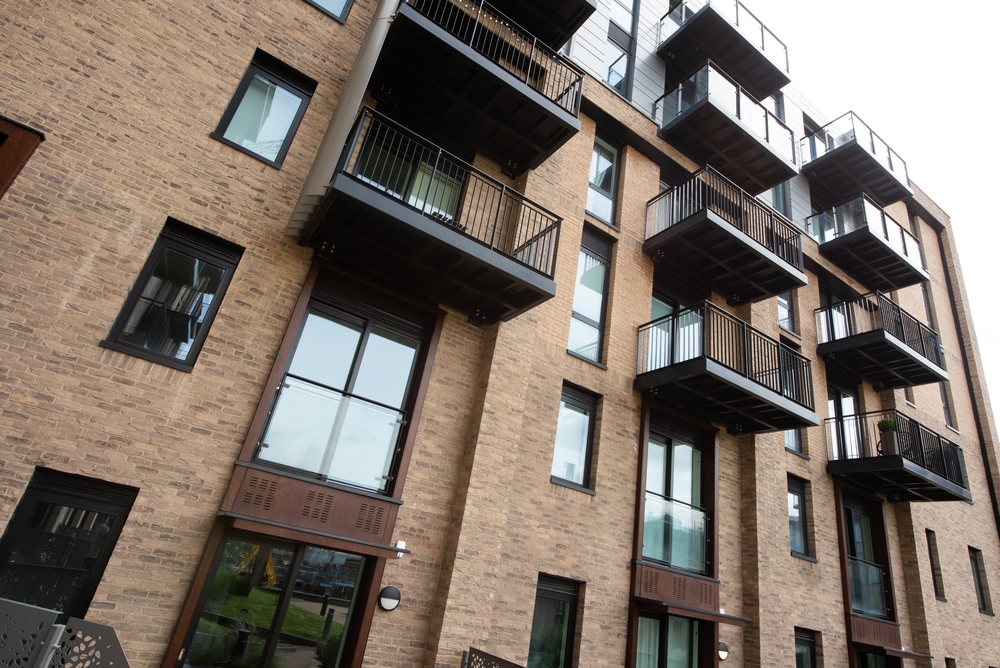Buying the freehold of a flat is a significant decision that comes with various benefits and considerations. This article explores the process of buying the freehold and highlights key takeaways to keep in mind. Whether you are looking to gain more control over the management of your property or increase its value, understanding the steps involved in buying the freehold is essential.
Key Takeaways
- Buying the freehold of a flat allows you to have more control over the management and affairs of the building.
- To buy the freehold, you need to team up with your neighbours and collectively purchase the entire freehold of the block.
- Owning the freehold adds value to your property and allows for lease extensions and the elimination of ground rent.
- Qualifying criteria, such as the number of flats in the building and the involvement of leaseholders, must be met to pursue buying the freehold.
- Consider the advantages and disadvantages of buying the freehold versus extending the lease to make an informed decision.
Understanding the Freehold of a Flat
What is a Freehold?
A freehold refers to a property ownership structure where residents of a building collectively own a share in the freehold title of the entire property. This includes both the land and the building itself. Residents with a share of freehold don’t merely lease their living spaces; they possess a direct stake in the ownership of the entire property. This aspect starkly contrasts leasehold arrangements, where residents rent their properties for a set period.
Here are some key points about freehold ownership:
- Collective Ownership: The concept of freehold epitomises collective ownership, where residents collectively hold a share in the freehold title of the entire property.
- Direct Stake in Property: Residents with a share of freehold don’t merely lease their living spaces; they possess a direct stake in the ownership of the entire property. This aspect starkly contrasts leasehold arrangements, where residents rent their properties for a set period.
- Community Empowerment: Share of freehold often involves residents forming a management company to collectively manage the property and make decisions regarding its maintenance and upkeep.
It’s important to note that freehold ownership is different from leasehold ownership, where residents have a lease agreement with a landlord for a specific period of time. With freehold ownership, residents have a more direct and long-term stake in the property.
The Difference Between Freehold and Leasehold
In a leasehold arrangement, the property owner (leaseholder) has the right to use and occupy the property for a specified period, as outlined in the lease agreement with the freeholder (landlord). However, ownership of the land itself remains with the freeholder. Leaseholders have limited control over the management and maintenance of the property and typically pay ground rent and service charges to the freeholder.
On the other hand, in a freehold arrangement, the buyer owns the property outright, including the land on which it is constructed. This means they have full control over the property and are not subject to ground rent or service charges. Buying the freehold of a flat allows the owner to have greater autonomy and decision-making power over the building and its management.
Here is a comparison table highlighting the key differences between leasehold and freehold:
| Leasehold | Freehold |
|---|---|
| Limited control over property management | Full control over property management |
| Pay ground rent and service charges | No ground rent or service charges |
| Ownership of land remains with the freeholder | Ownership of land belongs to the buyer |
It’s important to note that each ownership structure has its advantages and disadvantages. While leasehold arrangements may offer cost savings and shared responsibility for maintenance, freehold ownership provides greater control and autonomy. Ultimately, the decision to buy the freehold of a flat depends on individual circumstances and preferences.
Benefits of Buying the Freehold
Buying your freehold has several advantages:
- Increased Property Value: Freehold homes are usually worth more than leasehold properties. Owning the freehold can add significant value to your property.
- Extended Lease: As a freeholder, you have the option to extend your lease to 999 years for flats.
- No Ground Rent: By buying the freehold, you won’t have to pay any more ground rent.
- Control over Maintenance and Insurance: You will have the authority to decide how money is spent on maintenance and insurance.
- Removal of Conditions: Buying the freehold allows you to remove any conditions related to home improvement or pet ownership that were specified in your lease.
These benefits make buying the freehold an attractive option for many property owners.
Process of Buying the Freehold
Qualifying for the Right to Buy the Freehold
To qualify for the right to buy the freehold, there are certain criteria that must be met. First, at least two-thirds of the flats in the building must be owned by leaseholders with long leases of 21 years or more. Additionally, the participating leaseholders who wish to join in with the enfranchisement must make up at least 50% of the flats in the building. It’s important to note that if there are only two flats in the building, both flats must participate. However, a leaseholder who owns three or more flats in the building does not qualify as a ‘qualifying tenant’ and cannot participate in the process.
Valuation and Negotiation
After notifying the landlord, the next step in the process of buying the freehold of a flat is valuation and negotiation. This is a crucial stage as it determines the price that should be entered into the Section 13 Initial Notice. To ensure an accurate valuation, it is recommended to appoint a qualified surveyor who specializes in collective enfranchisement valuations. The surveyor will inspect the property and produce a valuation report, referred to as the premium. It is important to choose an experienced valuer, and if needed, you can request free quotations from different valuers.
Once the valuation report is obtained, negotiations can begin with the landlord. This involves discussing the proposed premium and reaching an agreement on the purchase price. It is advisable to seek legal advice during this stage to ensure your interests are protected.
During the negotiation process, it may be helpful to consider the following:
- Market value: Compare the valuation report with recent sales of similar properties in the area to assess the fairness of the proposed premium.
- Lease terms: Review the terms of the existing lease and consider any potential issues or restrictions that may affect the value of the freehold.
- Counter offers: Be prepared to make counter offers or negotiate on specific terms to reach a mutually acceptable agreement.
Remember, the valuation and negotiation stage is a crucial part of the process, and it is important to approach it with careful consideration and professional guidance.
Completing the Purchase
Once all the necessary steps have been taken and the negotiations have been finalized, the buyer can proceed with completing the purchase of the freehold. This involves signing the necessary legal documents, transferring the agreed-upon funds, and officially registering the change of ownership with the Land Registry. It is important for the buyer to carefully review all the documents and seek legal advice if needed to ensure a smooth and legally binding transaction. After the completion, the buyer becomes the sole owner of the freehold and can enjoy the benefits and responsibilities that come with it.
Conclusion
In conclusion, buying the freehold of a flat can be a complex process, but it offers several advantages. By purchasing the freehold, you have the opportunity to take control of the management and maintenance of the entire building. This gives you the freedom to make decisions about the property and potentially increase its value. However, it is important to consider the conditions and requirements for buying the freehold, such as the involvement of all leaseholders and the maximum non-residential use. Ultimately, whether you choose to buy the freehold or extend your lease depends on your specific circumstances and preferences. It is recommended to seek professional advice to make an informed decision.
Frequently Asked Questions
What is the difference between freehold and leasehold?
Freehold refers to ownership of the property and land, while leasehold refers to a long-term lease agreement with the freeholder.
How do I qualify to buy the freehold of a flat?
To qualify, the building must have at least two flats, both leaseholders must be involved if there are only two flats, and leaseholders who want to be involved must represent at least 50% of the flats in a large block of flats.
What are the benefits of buying the freehold?
Benefits include saving money on legal and administrative costs, being in charge of the management and maintenance of the whole building, and having a say in decision-making.
Can I buy the freehold if I own multiple flats in the building?
No, if you own three or more flats in the building, you are not considered a ‘qualifying tenant’ and cannot participate in buying the freehold.
Should I buy the freehold or extend my lease?
The decision depends on various factors such as the value of your property, the length of your lease, and your preferences for ownership and control.
Is buying the freehold more expensive than extending a lease?
Buying the freehold is generally more expensive than extending a lease, but it offers additional benefits such as increased property value and complete ownership.

